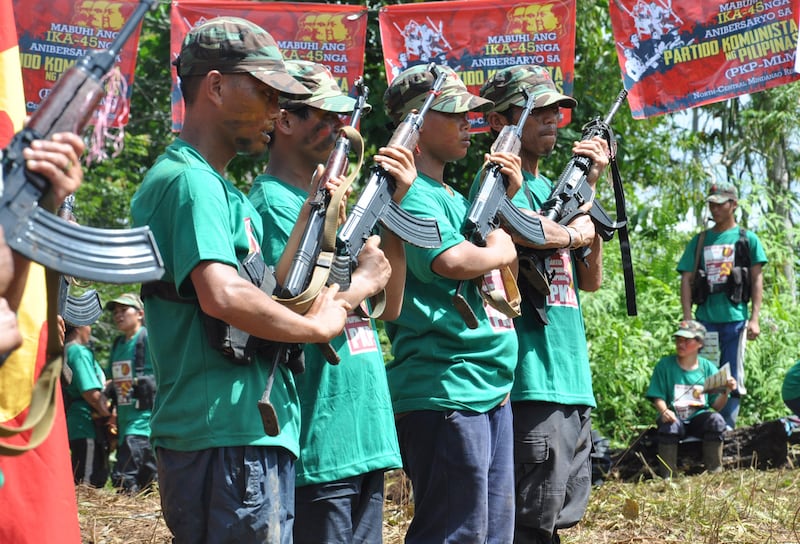It is too early for the Philippine government to declare victory against communist rebels who have been waging a bloody insurgency for decades, a conflict monitoring group said in a report Friday, warning that splinter factions could form across the archipelago.
The Brussels-based International Crisis Group (ICG) said that although the rebellion being waged by the New People’s Army (NPA) appeared to be at a low ebb, Manila may be “underestimating the rebels’ resilience.”
"Fighting has fallen in intensity nationwide, but pockets of conflict remain in some of the country's poorest and most remote areas," the group said in a new 41-page report.
“Whether the insurgents can survive a further wave of military pressure is uncertain, but for now it is too early to speak of total rebel collapse,” it added.
Philippine President Ferdinand Marcos Jr. said early this year that there were “no active NPA guerrilla fronts as of December 2023” and the military had neutralized 1,399 members of communist and local terrorist groups.
While the government has “indisputably weakened” the rebels, the ICG estimated that between 1,200 and 2,000 fighters remain under arms.
“Their elusiveness and residual community support mean that efforts to vanquish the guerrillas on the battlefield will be arduous and prone to spurring new manifestations of armed conflict,” the report said.
“Both sides should look to fresh peace talks, due to begin soon, as the best route to settling the conflict. To overcome the mutual distrust that scuppered previous negotiations, [the] government and rebels should craft steps to reduce violence and build confidence before turning to major points on the agenda.”

In November last year, rebel leaders and government representatives met in Norway where they agreed to resume peace talks that former President Rodrigo Duterte canceled in 2017.
A month later, the military killed at least nine alleged communist rebels in a clash on Christmas Day in the southern Philippines.
“The announcement of a return to talks, which surprised many, represents an opportunity that should not be missed. To ensure that these talks do not suffer the same fate as the round that collapsed in 2017, Manila and the rebels need to focus from the start on agreeing to concrete steps to reduce violence and build trust,” the ICG said.
It recommended implementing concrete steps to reduce violence and build trust such as guaranteeing freedom of movement for rebel negotiators and local or temporary ceasefires.
“Progress in these areas could help establish the foundations for discussions about substantive reforms long demanded by the rebels, including thorny issues relating to rural development,” the report said.
The NPA, which is the military wing of the outlawed Communist Party of the Philippines, has been waging Asia’s longest-running rebellion dating back to 1969.
At its peak in the 1980s it had about 20,000 fighters; its ranks swelling as the military focused on dealing with Mindanao’s Moro secessionist groups and as opposition to the dictatorship of former President Ferdinand Marcos Sr. hardened. But its forces have significantly dwindled over the years.
The National Security Council early this month said there were only 11 “weakened guerrilla fronts” nationwide with about 1,500 regular fighters seeking to overthrow the government.
Following the death of 83-year-old self-exiled Philippine communist leader Jose Maria Sison in the Netherlands last year, the government intensified its series of attacks against the rebels.
Jeoffrey Maitem and Jojo Riñoza contributed to this report from Manila
